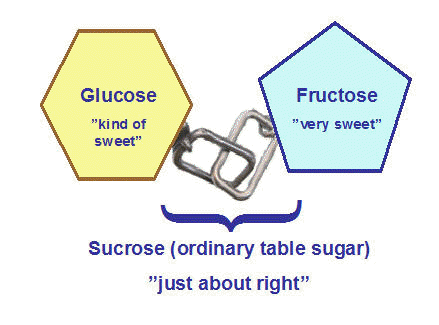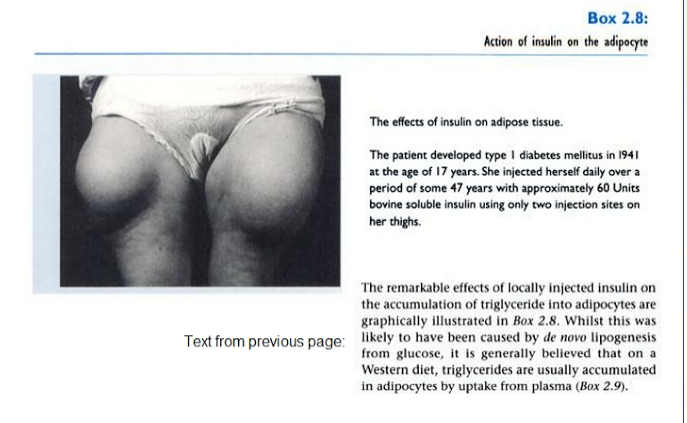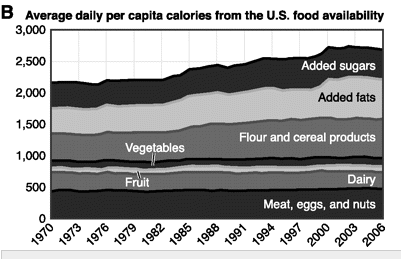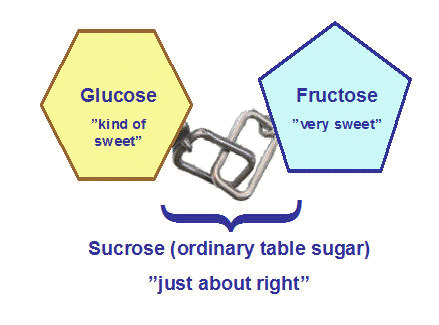
I watched the much circulated “Sugar: The Bitter Truth” video by a UC Davis professor for the first time about two weeks ago. You can view it below:
I think he excessively moralizes the societal causes of sugar consumption and overgeneralizes some of the studies he cites, but the bulk of the message is true.
Added sugar is bad for you. It increases your caloric intake, decreases your satiety, and causes your body to create a big money shot of insulin.
All of these add up together to make you fat. Caloric intake gets the most attention of these three, but in my opinion excessive insulin is the largest evil.
The following picture IS misleading, but eye-opening nonetheless:

It’s from an endocrinology textbook, made popular by Gary Taubes. It’s what happened to a lady after taking bovine insulin in her thighs after 40 years. (Again, this photo is to illustrate a point. For several reasons it doesn’t correlate to the way insulin is secreted in the body. I’m not trying to scare you).
Insulin is probably about a billion years old, and is very well conserved in the animal kingdom. Most vertebrates have insulin proteins that vary only by a few peptides. Insulin is primarily released to sweep glucose out of the blood.
Fructose vs. Glucose
The majority of the sugar we consume in our diet comes from added sweeteners (about 85%). The various forms of added sugar are entirely composed of two different types of sugar: glucose and fructose.
They have the exact same chemical formula (C6H12O6), but are metabolized differently in the body. Glucose is used by all cells, but fructose is metabolized in the liver.
In addition to the negative effects of excessive sugar, fructose has received a lot of negative attention for the following reasons:
- Its metabolism leads to fatty acid synthesis in the liver
- By products of fructose metabolism include uric acid and lactate, which are precursors to gout and VLDL cholesterol, the kind that’s especially bad for you.
- Fructose does not stimulate the expression of ghrelin or leptin, two hormones important for appetite suppression and hunger management
- Fructose is sweeter than glucose, which can create heightened flavor/calories associations, which stimulates appetite
- Fructose easily binds with metals and limits absorption of other vitamins and minerals. It might be an anti-nutrient like phytic acid.
Glucose does not have these qualities in the same amounts as fructose.
So is fructose alone the primary evil? Is fructose the “bad carb” and glucose the “good carb?”
In my opinion no. All else equal, consuming more glucose is preferable to fructose, but the pernicious effects of sugar consumption would be about the same if you substituted one for the other. So in the big picture they both suck when you eat too much of them.
Why do I say that?
- The majority of fructose ingested through the diet is converted into glucose anyway
- The nasty by products of fructose metabolism are small both in absolute terms and as a percentage of total by products created in the process
- Diets high solely in glucose (and fat, for that matter) produce crappy health effects that are similar to those that arise only from excessive fructose consumption
It’s also important to remember that table sugar, honey, high fructose corn syrup, other syrups, and fruit juice concentrates are almost exactly the same thing. With little variation they’re all about a 50% split between fructose and glucose. Switching out one or the other doesn’t change much.
Past certain levels sugar itself is very unhealthy. The difference between fructose and glucose doesn’t matter so much…..it’s a tertiary consideration.
Excessive Sugar vs. Other Macronutrients
It’s true that fructose consumption all by itself has increased a lot in the last 30-40 years and that makes us fat. But so has lots of other nasty stuff. Here’s a useful chart comparing the consumption patterns of different food groups in the USA over the last 40 years:

Looking at that picture you could formulate a variety of hypotheses. Is it the carbs? The fat? The excess calories? The lack of satiating food which makes us eat more of everything? The lack of nutrients? The insulin?
In my opinion the combination of low nutrient density and excessive simple carbohydrate consumption are the two biggest culprits, in front of fat and raw caloric intake all by itself. But the difference between glucose and fructose isn’t as important as simple vs. complex.
References
Tappy, Luc, et. al. “Metabolic Effects of Fructose and the Worldwide Increase in Obesity”
URL: http://physrev.physiology.org/content/90/1/23.long
Bray, George, et. al. “How Bad is Fructose?”
URL: http://ajcn.nutrition.org/content/86/4/895.full
Froesch, E.R., et. al. “Fructose Metabolism of Adipose Tissue”

[…] Fructose is fattening and not good for you. I’ve written about its effects here and here. Not what I’d want in a health supplement. I tried the very berry flavor, and I thought […]
LikeLike